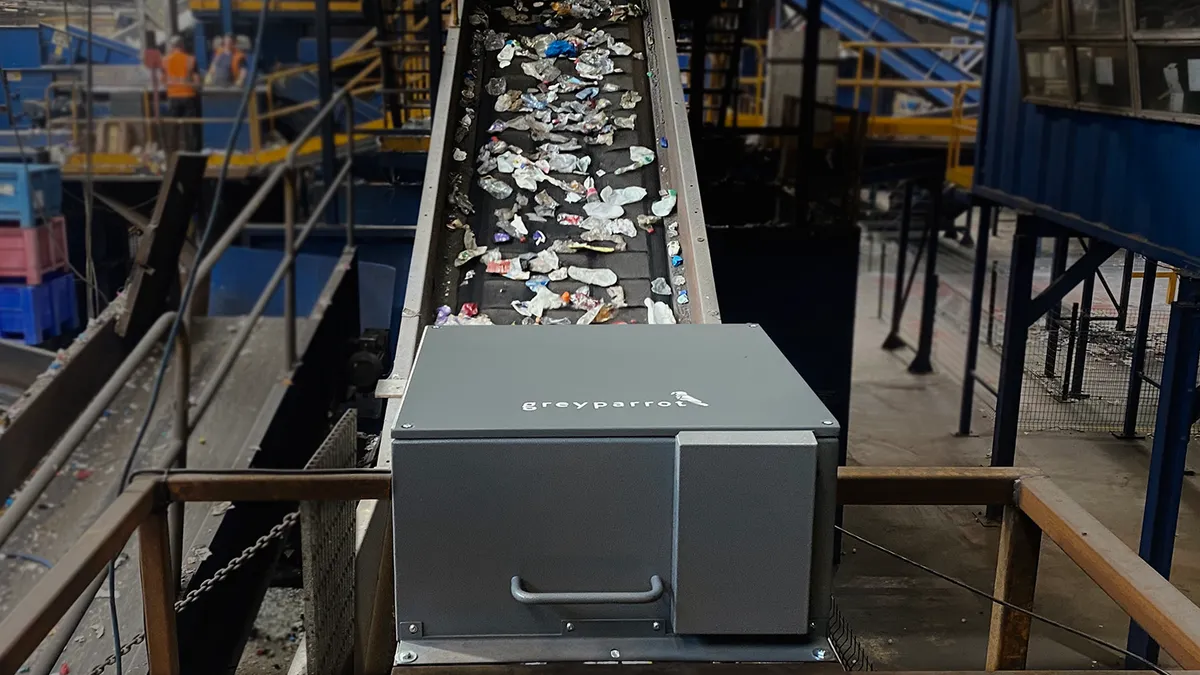Closed Loop Partners will conduct a study analyzing the polypropylene in recycling streams using AI technology from Greyparrot, a waste analytics platform.
The six-month study will track and categorize objects in the PP stream. That data can be used to estimate “untapped value” in PP streams, identify non-PP materials that are contaminating the stream, estimate volume of food-grade material and identify “opportunities for recovery and separation into distinct value chains,” Closed Loop said in an announcement.
Four MRFs will participate in the study: Balcones Recycling in Texas, Cougles Recycling in Pennsylvania, Rumpke Recycling in Ohio and Eureka Recycling in Minnesota. Greyparrot’s camera systems will be installed above the PP recovery conveyor belts at the MRFs to take snapshots of the material stream.
Closed Loop’s Center for the Circular Economy and the NextGen Consortium, a coalition of major brands, want to more effectively sort food-grade and clear PP into its own bale, which the organizations say will help retain the material’s high value and increase the amount of material available for food-grade uses.
More brands are signing on to recycled content commitments, and a major goal of the consortium is to gather any data that can help “advance the circularity of foodservice packaging,” said Kate Daly, managing director and head of the Center for the Circular Economy, in a statement.
Greyparrot’s AI model aims to categorize each object based on material, format and brand, as well as distinguish food- and non-food-grade material. It also aims to estimate objects’ financial value, Closed Loop said. “A lot is unknown about the curbside polypropylene stream today. Filling these knowledge gaps can increase the pace of development for material recovery,” said Curt Cozart, a technical advisor to the project, in a statement.
The Greyparrot collaboration is also meant to update PP composition data first collected in 2022, when the consortium partnered with Resource Recycling Systems to examine PP bales in two MRFs. About 48% of PP bales were presumed food-grade, and 26% were clear food-grade. Clear beverage cups were on average 14% of the bale. The high amounts “suggested that there is untapped value in the PP stream,” Closed Loop said. PP cup recovery is another major focus for the consortium, it said.














